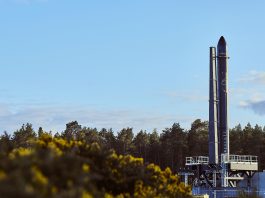2023 was a pivotal year for investments in space tech, with around $4.8bn being invested worldwide.
Historic events in the space tech sector also occurred, such as India’s Chandrayaan-3 moon landing, the advancements of SpaceX’s Starship, and mergers and acquisitions from companies such as Maxar, Viasat, and Inmarsat.
Countries worldwide realised that investments in the space sector were of critical importance, with national and economic security depending on space systems.
The emergence of a new global space race has also evoked interest and competition.
With the space race well and truly thriving, what space tech advancements could happen in 2024?
Space tech: A developing frontier of innovation
In today’s world, countries depend more on space as a mission-critical and developing frontier for information sharing and surveillance.
Many networks are now switching from terrestrial (land-based) communications to cloud-based communications, utilising satellites to transfer data across long international distances.
Space tech plays a crucial role in national security by observing adversarial threats and geopolitical moves in the form of satellites.
Due to our increasing reliance on space, and particularly satellites, for communications, security, intelligence, and business, satellites and space tech are becoming increasingly important in 2024.
What can we expect to see in 2024?
More strategic space tech partnerships
2023 saw a huge increase in strategic partnerships within the space tech sector.
One example was the UK Space Agency’s £20 million International Bilateral Fund, which linked UK organisations with the US, Canada, Australia, Japan, India, Singapore, South Africa and more to form collaborations that will progress space research and catalyse investment in new technologies.
The satcoms sector is poised for further consolidation as operators proactively fortify their defences against the looming threats posed by the ‘mega-constellations’ of Starlink, OneWeb, and Amazon Kuiper.
Expectations of consolidation extend into the Earth observation sector, driven by dual forces.
Upscaling the Earth observation market
In the face of increasingly extreme weather events that are disrupting lives globally, accurate Earth observation has never been more critical.

Satellite technology development is facilitating a revolutionary era of space tech with data and analytics. Satellites are pivotal in monitoring and mitigating climate change and help us understand our planet better.
As governments and regulatory bodies intensify their focus on environmental transparency and sustainability reporting, businesses and organisations must adopt data from advanced Earth observation satellites.
Consequently, this regulatory momentum is expected to ignite unprecedented growth in the space tech market, fostering the development and deployment of cutting-edge technologies that facilitate more accurate, independent, globally comparable metrics for monitoring our planet’s vital signs.
Countries will attempt missions to the Moon
2024 is set to be the year when countries and space tech organisations take a huge leap into the commercial lunar market.

Japan will be the leader in 2024 with its Artemis II mission, with NASA astronauts circling the Moon but not landing on the lunar south pole until 2025.
The Artemis programme is a government-funded, commercially driven mission with NASA awarding contracts with established industry players like Lockheed Martin and NewSpace giants like SpaceX, Blue Origin, and Firefly.









